Unit-3
Sequences and Series
Q1: Consider a sequence 2, 3/2 , 4/3 , 5/4, …….. here Sn = 1 + 1/n
A1. As we can see that the sequence Sn is convergent and has limit 1.
According to def.


Q2: Check whether the series  is convergent or divergent. Find its value in case of convergent.
is convergent or divergent. Find its value in case of convergent.
A2. The general formula for this series is given by,
Sn =  =
=  )
)
We get,
 ) = 3/2
) = 3/2
Hence the series is convergent and its values is 3/2.
Q3: Check whether the following series is convergent or divergent. If convergent, find its value.

A3. n’th term of the series will be,




Q4: Test the convergence of the series- 
A4. Here we can see that the given series is in geometric progression
As its first term is 1 and common ratio is ½.
Then we know that the sum of n terms of a geometric progression is-

Hence the limit will be-

So that the series is convergent.
Q5: Test the convergence of the following series.

A5. We have 
First we will find  and the
and the 


And
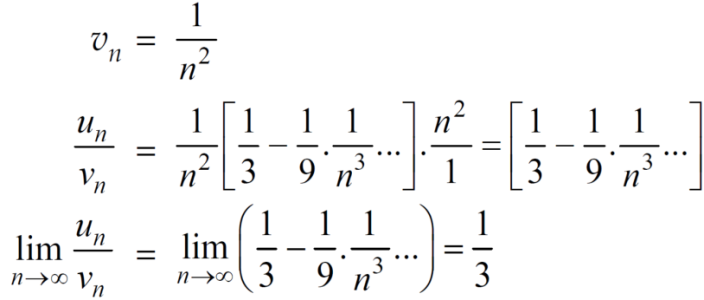
Here, we can see that, the limit is finite and not zero,
Therefore,  and
and  converges or diverges together.
converges or diverges together.
Since  is of the form
is of the form  where p = 2>1
where p = 2>1
So that , we can say that,
 is convergent , so that
is convergent , so that  will also be convergent.
will also be convergent.
Q6: Test the convergence of the series whose n’th term is given below-
n’th term = 
A6. We have
 and
and 
By D’Alembert ratio test,

So that by D’Alembert ratio test , the series will be convergent.
Q7: Test for the convergence of the n’th term of the series given below-

A7. We have ,
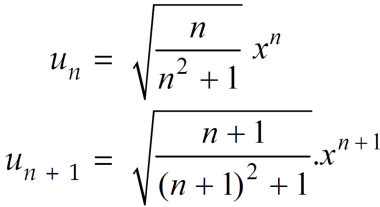


Now , by D’Almbert ratio test  converges if
converges if  and diverges if
and diverges if 
At x = 1 , this test fails.
Now , when x = 1
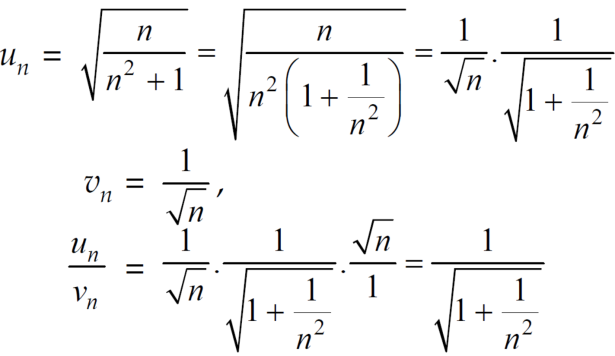

The limit is finite and not zero.
Then by comparison test,  converges or diverges together.
converges or diverges together.
Since  is the form of
is the form of  , in which
, in which 
Hence  diverges then
diverges then  will also diverge.
will also diverge.
Therefore in the given series  converges if x<1 and diverges if x≥1.
converges if x<1 and diverges if x≥1.
Q8: Find the fourier series of the function f(x) = x where 0 < x < 2 π
A8. We know that, from fourier series,

first we will find  ,
,

Now, 

And  ,
,

Put these value in fourier series, we get

Q9: Find the Fourier series for f(x) =  in the interval
in the interval  .
.
A9.
Suppose 
Then-

And


So that-


And then-




Now put these value in equations (1), we get-

Q10: Find the Fourier series expansion of the periodic function of period 2π.
f(x) = x² , -π≤x≤π
A10. The given function is even, so that,

We will find 
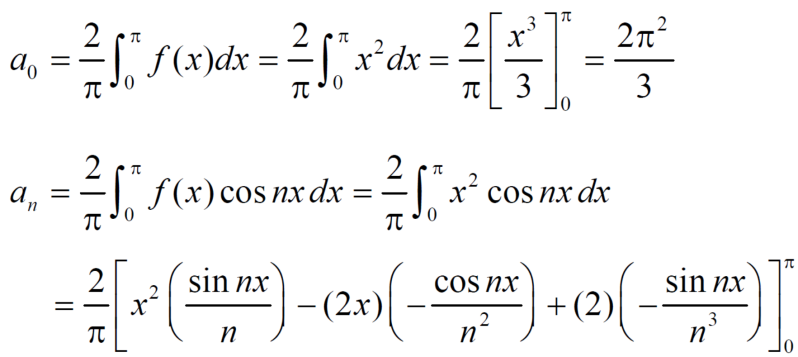

The Fourier series will be,


Q11: Find the Fourier sine series for the function-

Where ‘a’ is a constant.
A11. here we know-


We know that-



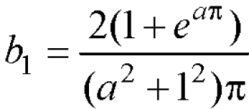
And

